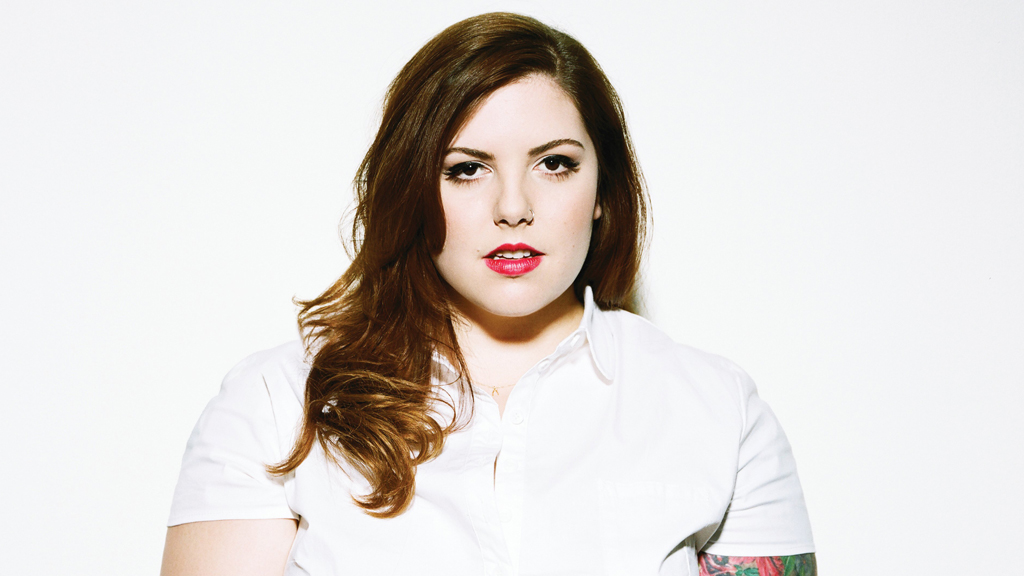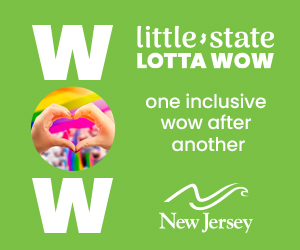Mary Lambert
The emotionally charged and compelling songstress, spoken word artist and Grammy-nominated Mary Lambert, best known for her work with Macklemore and Ryan Lewis on the gay rights single “Some Love,” has recently released her album “Heart on My Sleeve.” Included on the release is her hit single “Secrets.”
Her songs and style are often compared to those of Adele, Tori Amos and James Blake. She draws many of her ideas from the traumas experienced while growing up, including sexual abuse, her bi- polar disorder and her sexuality. “Some Love,” which she also does vocals on, originates from her experiences as a lesbian growing up in the midst of a fierce Christian upbringing. Her shows have a tint of darkness surrounding them; however, they are considered to be “safe spaces” where crying is allowed and ever encouraged.
So what’s next for you: another release, touring or…?
I’m going to do a little tour again in May with “The Script,” and a second single should be coming out soon, and as of right now I’ve just been writing a lot. I’m working on my book, so I’ll have a collection of poetry come out.
What are you going to call the book?
I don’t know yet. The title will come to me.
What exactly is a “spoken word artist”?
They used to use the term “slam poet,” but I prefer spoken word to slam poet, because I think the slam kind of refers to the competition. I don’t know if you’ve ever gone to a poetry competition. It’s not like going to a poetry reading from a book and everybody’s falling asleep. It’s really interactive. That’s really where I learned the importance of being vulnerable on stage and the rule of speaking the truth and singing the truth. Whatever I do it ends to happen on the “spoken word” page. My favorite tends to be with youths rather than adults. Adults are cool too, but usually teenagers are people who are really on fire about the world, because it’s unfolding before them. They have such an incredibly honest performance, because they’re hungry about the craft and hungry about each other, [and] they’ve found a community of people who understand them. It’s a really beautiful thing.
Many of your shows are described as “a safe place” where people can cry and are encouraged to cry. Does that really happen?
Yeah, it’s absolutely that way. It’s as therapeutic for me as I bet it is for other people. It doesn’t have to be that way; it’s only because of some of the topics that I cover, that I tend to range from body image, domestic abuse, to sexual assault. So when I talk about rape, I’m not fucking around. These are things that I really care about and I wish were spoken about in mainstream pop culture, but are not. So I feel like I have an inherent responsibility as someone who’s suffered through a lot of these things that I talk about to bring light to them and encourage other people that they’re OK. Like, whatever it is, you can get through it; you’re strong enough to do this. A lot of shows are about vulnerability and about inviting people to feel whatever it is they need to feel. That’s my main goal.
You’ve been through a lot in your young little life. Have you found happiness?
Absolutely! I wouldn’t be doing this if I wasn’t completely happy. Most of my life I was kind of a sad person. As someone who has bi-polar disorder you can really easily master that hyper-manic person that’s so funny and laughing all the time. Growing up I had a lot of darkness that I was addressing or didn’t want to address, and it came back to bite me. I had very self-destructive behavior when I left high school all the way through college. Then something happened about five years ago, and I don’t really know what it was, but it was just a turning point in my mentality where I realized that my life is as good as I say it is. I was having the shittiest year of my life, and I wanted to kill myself. I really wish I could pinpoint it – “Oh, it happened here” – but it was really a progression of self-caring, self-love, and it just seemed to come to what the world was really asking of me and what I could accomplish. And so I took anything that was going on with me and I put it into art. So I’m happy now.
Well, all that matters now is that you found the strength to get happy now! Mary, if you could pick two celebrities to be your parents, who would you choose?
Wow, I don’t know. Like them as characters they’ve played or them as people?
Either. The question is open for interpretation.
My first thought was Phoebe from “Friends” as my mom. I feel like John Travolta in “Hairspray” when he plays the mom.
So if you were a superhero and could choose your own powers, which ones would you want to have?
Funny that you asked, I’ve been thinking a lot about this. I would love the ability to understand and speak all languages, including animals, really cute animals. Well, I’d want them translated into things that I would understand. I think everybody in their life really just wants to be understood and heard. I think that it would be a real gift to offer that to people.
What would be your one wish for humanity if you could make a wish and see it come true?
My Miss America one wish. Man, that’s a heavy burden. It would be the ability for every person who’s ever discriminated or who’s ever felt judgmental, which I don’t think there’s a single person who hasn’t felt judgmental, to literally assume that “judged” person’s life for a day. I think that could be really eye opening.
Did you always know growing up that you’d be an entertainer, because I know that you’re very artistic, and I know that you had to notice that.
I did. My mother was very good at every stage of asking me what I wanted to be when I grew up. There was one time when she asked me what I wanted to be when I said that I wanted to be a doctor. She said, “Well, what kind of doctor?” And I said, “a Doctor Seuss.” I loved that Dr. Seuss was a healer, you know what I mean. He was considered a healer. As I got older I wanted to be a singing, dancing waitress, and there was a time in my life that that was absolutely true, so that was sort of my goal, and I was performing these concerts in my living room. I was a lonely kid and misunderstood, and I would give these concerts to no one, and I would bow and say my name was Mary Lambert. I wrote this song when I was seven years old, and it’s inspired by a pet cat, and then I would sit down on the couch and have my interview with Jay Leno afterwards. But it was in my blood what I wanted to do. For me I think what the goal always was was sort of a two-fold career. As a singer-songwriter you really have the best of both worlds. You have the first step with the creative part, which is essential to the musical human being to thrive, and then the second part is the sharing. I feel like I need those two parts of my job description in order to function.
Where do you want to be in 20 years?
So I’ll be 45. I wanna be home with my kids and my wife. Wait, my kids will be like teenagers then.
You might opt not to be home with them.
Yeah, good riddance. I don’t wanna be touring all the time. It’s brutal. I was away from home about over 300 days this last year, and I’ve learned that it’s not something I’m comfortable or feel particularly happy with. I would like to totally be writing at that point for other people, and I’ll occasionally go out and do shows, and they’ll pay me a million dollars for every show.


